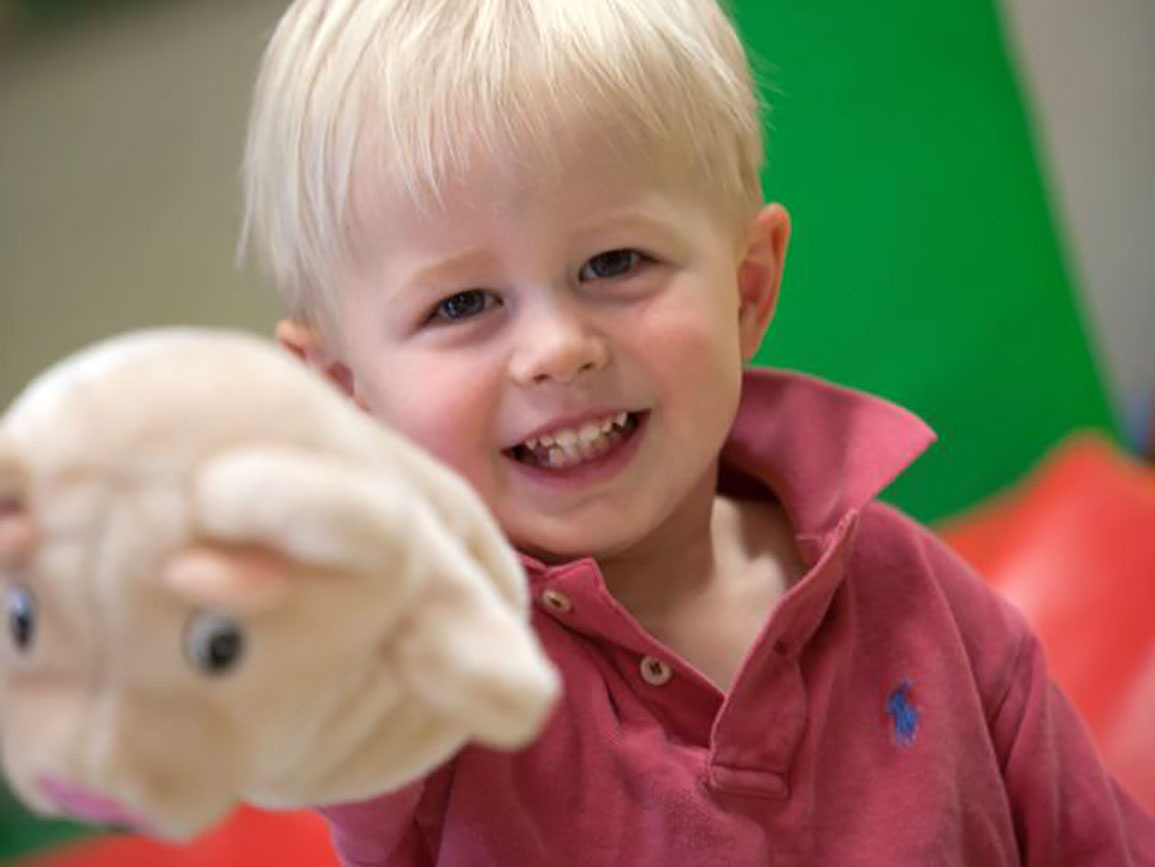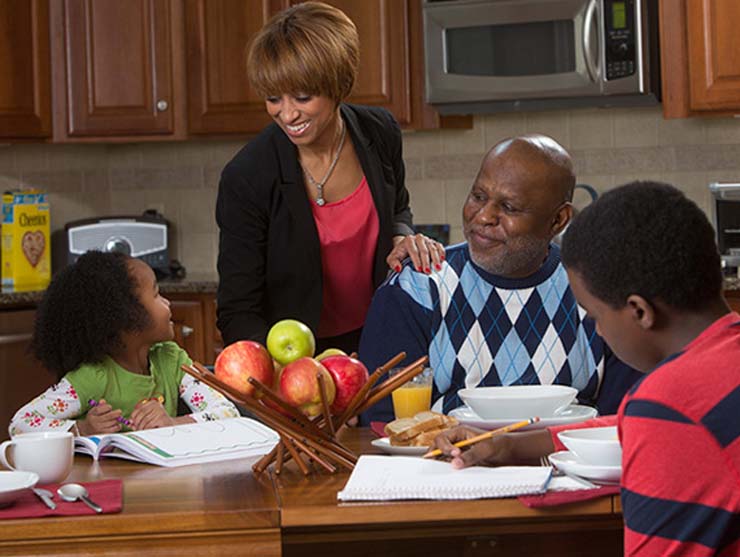A recent World Economic Forum report lists several social and emotional skills as invaluable in today's job market—with good reason.
The results of numerous studies demonstrate that children’s social-emotional learning is just as critical as their physical or cognitive growth. Social-emotional skills affect every aspect of life, including personal relationships, academic growth, learning, and self-esteem.
Social-emotional development often occurs organically, as parents and teachers model positive relationships. These skills can also be taught and encouraged, just like any other skill. During the preschool years, children can learn the basics of emotional literacy, social interactions, and problem-solving.
Here are 8 ways we encourage social-emotional development at Bright Horizons that you can try at home:
1. Be a warm, nurturing caregiver
From a young age, children need the support of a loving adult who offers care, warmth, and respect. We provide guidance and are attentive to their needs.
When children have a caregiver who listens and supports them, they feel safe to learn and try new things. They are also more likely to ask questions and explore the world around them. This foundation of trust allows children to grow and thrive.
2. Foster emotional literacy in children
According to Vanderbilt University’s Center on the Social and Emotional Foundations for Early Learning, children who have a strong foundation of emotional literacy tend to have positive relationships with others, feel happier, and even do better academically. One critical aspect of emotional literacy is being able to identify emotional responses.
Help your child identify and articulate how they’re feeling, first by labeling their feelings. “You’re yelling and stomping your feet. I can tell you feel frustrated right now. Do you want to tell me about it?”
Give your child permission to express negative emotions and offer reassurance. Intense feelings of anger and sadness can feel frightening to a child. Help your child understand that these negative emotions are a normal part of life and that you’ll help them handle these feelings.
3. Be a role model
Children learn through imitation, and they observe how you express your emotions in different situations, such as how you react when there is traffic or when you forget something important after leaving the house. Model self-awareness and self-regulation by taking a deep breath and verbalizing your own thoughts and feelings.
“We left the house in a hurry and we forgot our lunchboxes. I’m worried that when we turn back to get them, we’ll be running late. I’m disappointed that I forgot them.”
Don’t expect perfection. Instead, show children that it’s okay to make mistakes and teach them how to react to undesired circumstances.
4. Build your preschooler's social confidence
Children vary widely in their social readiness. Some children are naturally social, effortlessly interacting with others. Other children may seem shy, anxious, or even aggressive in social situations.
Differences in temperament usually account for these variations. But a little education can go a long way in your child's social development, building confidence and increasing the chances for social success.
Teach your child how to say hello, look someone in the eye, or ask to, just as you would teach your child how to wash their hands or put on their coat.
Use playdates to help build your child's social skills. Teach your child what to say and show them how to start talking to others. For example, show them how to tap a friend on the shoulder and ask, "Can I play with you?"
5. Use books
Reading aloud with your child is one of the best ways to foster their social-emotional learning. Books offer endless possibilities to explore different social situations, perspectives, and characters. Offer diverse, high-quality books that enlighten children to new concepts and ideas.
During story time, ask your preschooler open-ended questions, such as “How do you think she feels? Why do you think she feels sad? What do you think is going to happen next? I wonder what would happen if…”
6. Prioritize 1:1 interactions
Prime Times is a unique staple of Bright Horizons.
Coined by Jim Greenman, Prime Times are everyday moments of one-on-one responsive, thoughtful interaction between a child and an adult. This can include an attentive conversation, a moment of creative inquiry, a reflection, or an opportunity for them to make a choice.
By giving children a few minutes of our undivided attention, we support their emotional intelligence, building a strong sense of personal worth, and a sense of autonomy.
7. Boost self-skills
Vital to children’s self-confidence and competency is their independence or agency. This is the belief that they can do many things for themselves and have the capacity to make choices. Being independent feels good and contributes to their emotional well-being.
We support children’s self-skills by giving them the opportunity to make simple choices and practice independence during mealtimes, dressing, washing their own hands, and more. It gives them a sense of control and the belief, “I can do it!”
8. Practice mindfulness
Mindfulness and meditation stimulate our bodies’ emotional regulation. Building this practice into children’s everyday lives reminds them to pause and reflect, especially when they experience complex emotions. Practice this with your child by taking a few deep breaths, stopping to notice sensory input (grounding with the senses).
At Bright Horizons, we know that social-emotional learning is the foundation that allows for success in all other areas of learning and life. It is not secondary to other learning, but the most important thing we do. The social-emotional learning aspect of our curriculum fosters the skills and attributes children and adults need for optimal emotional health and successful interactions in society. A solid start socially and emotionally sets children up for success in school and life.





